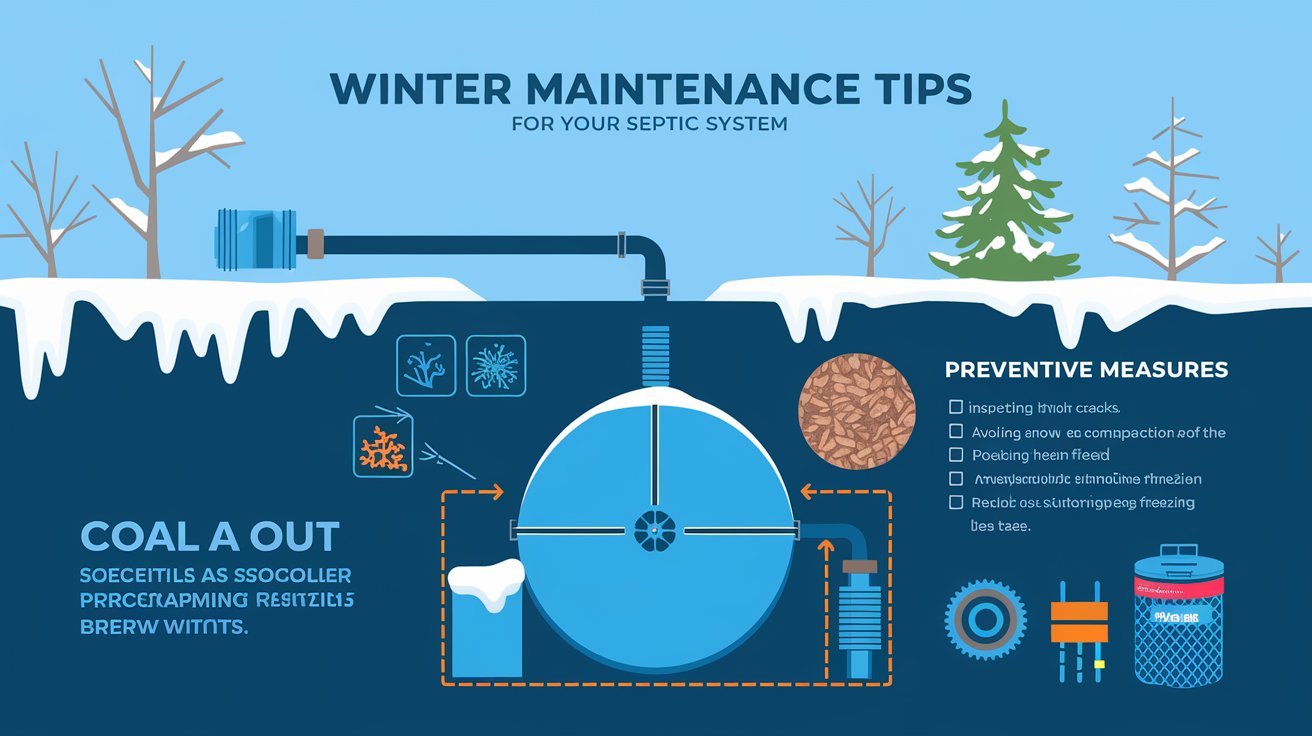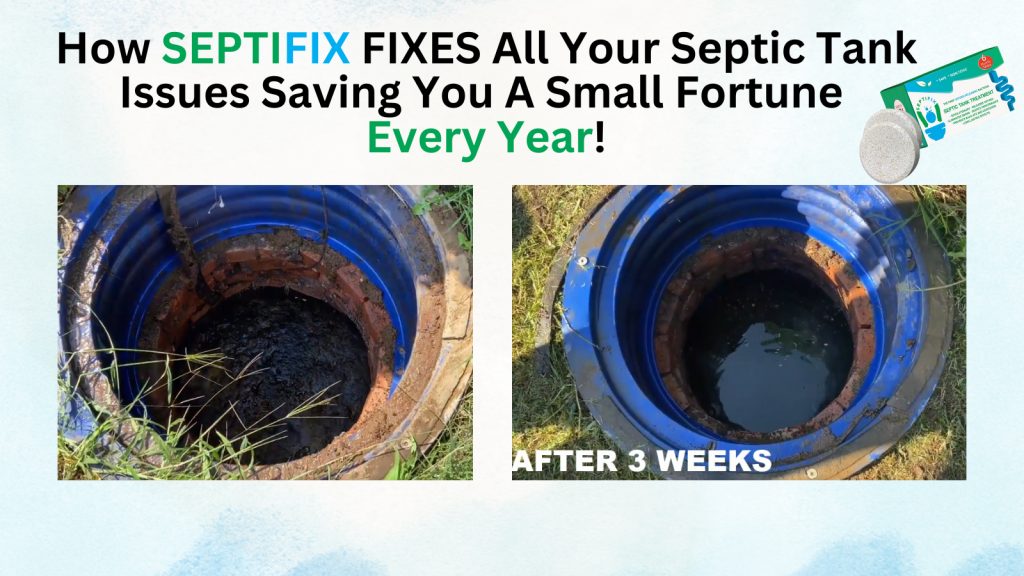Septic issues in cold climates present unique challenges that can significantly affect the performance of your wastewater treatment system. Homeowners in northern regions must be aware of potential problems such as freezing temperatures and frost heaving, which can lead to costly repairs if not addressed promptly. In this article, we will explore these challenges and provide practical solutions to ensure your septic system operates efficiently throughout the winter months.
Table of Contents
- Understanding Septic Systems
- How Septic Systems Work
- Common Challenges in Cold Climates
- Preventive Measures
- FAQs About Septic Issues in Cold Climates
- Septifix
- Septic Permit Links by State
Understanding Septic Systems
A septic system is designed to treat household wastewater by separating solids from liquids. The solids settle at the bottom of the tank, where bacteria break them down. Regular maintenance is crucial for keeping this system functional, especially in areas subject to extreme weather conditions. Homeowners should be familiar with how their systems work and the importance of routine inspections.
How Septic Systems Work
- Wastewater Flow: Wastewater from your home flows into the septic tank.
- Separation Process: Inside the tank, solids settle at the bottom, forming sludge, while lighter materials like grease float to the top, creating scum.
- Bacterial Action: Anaerobic bacteria break down solids in the sludge layer.
- Effluent Distribution: The liquid effluent flows into a drain field where it is further treated by soil microorganisms.
Understanding this process is essential for recognizing how environmental factors like cold weather can disrupt system functionality.
Common Challenges in Cold Climates
Freezing Temperatures
In colder climates, freezing temperatures can cause serious issues for septic systems. When temperatures drop below freezing, water inside pipes can freeze, leading to blockages or ruptures. Homeowners should be vigilant for signs such as slow drains or unusual noises from their plumbing, which may indicate freezing problems.
- Signs of Freezing:
- Slow Drains: Water takes longer than usual to drain.
- Gurgling Sounds: Unusual noises from pipes may signal trapped air due to blockages.
- Foul Odors: A noticeable smell around the tank or drain field could suggest a backup.
Frost Heaving
Frost heaving occurs when soil expands due to freezing temperatures, potentially lifting components of the septic system out of alignment. This can disrupt the flow of wastewater and lead to backups or leaks. Understanding how frost heaving affects your system is essential for preventing damage during winter months.
- Impact on Septic Systems:
- Misalignment of pipes can lead to incomplete drainage.
- Surface cracking may expose components to further damage.
Preventive Measures
Insulation Techniques
One effective way to prevent freezing is by insulating pipes and tanks. Insulation helps maintain a stable temperature within the system, reducing the risk of ice formation. Materials such as foam insulation or heat tape can be used to wrap exposed pipes, providing an extra layer of protection against the cold.
- Recommended Insulation Materials:
- Foam Board Insulation: Effective for covering tanks and shallow piping.
- Heat Tape: Electrical heating tape can be wrapped around pipes to provide warmth during extreme cold.
Regular Maintenance
Regular maintenance is key to ensuring your septic system remains functional during winter months. The EPA recommends inspecting your system every 3 to 5 years, depending on usage and household size . Keeping detailed records of maintenance activities can help identify patterns that may indicate potential problems.
- Maintenance Checklist:
- Inspect tank levels and sludge accumulation.
- Check for leaks around joints and connections.
- Ensure that drain fields are clear of debris and vegetation.
Signs of Trouble
Homeowners should be aware of several signs that may indicate trouble with their septic systems:
- Slow Drains: Water draining slowly from sinks and toilets can indicate blockages.
- Foul Odors: A strong sewage smell near the tank or drain field is a warning sign.
- Backups: Frequent backups in toilets or sinks require immediate attention.
If these signs are observed, it’s essential to investigate further before they escalate into more significant issues.
When to Call a Professional
If you notice persistent problems or suspect that your system may be compromised due to cold weather effects, it’s crucial to call a professional. Certified septic service providers have the expertise necessary to diagnose issues accurately and recommend appropriate solutions. Regular professional inspections can prevent minor problems from becoming major repairs.
- Benefits of Professional Help:
- Expertise in identifying hidden issues.
- Access to specialized tools and technologies.
- Peace of mind knowing your system is in good hands.
Conclusion
Understanding septic issues in cold climates is vital for homeowners looking to maintain their wastewater systems effectively. By recognizing common challenges such as freezing temperatures and frost heaving, implementing preventive measures like insulation, and staying vigilant for signs of trouble, you can ensure your septic system remains functional throughout winter. Need help with septic tank maintenance? Check out our product reviews! By following these guidelines and utilizing trusted resources , homeowners can navigate the complexities of maintaining their septic systems even in challenging cold climates .
FAQs About Septic Issues in Cold Climates
Can septic systems freeze in cold weather?
Yes, septic systems can freeze if they are not properly insulated or prepared for winter. The most vulnerable parts are the pipes leading from your home to the septic tank, as well as the tank itself. Proper insulation and maintenance are crucial to prevent freezing. For more tips, check out this article on preventing frozen septic systems from Family Handyman.
What can I do to prevent my septic system from freezing?
To prevent freezing, you can:
- Insulate: Add mulch or straw over the pipes and tank to provide insulation.
- Limit traffic: Avoid compacting snow by keeping vehicles and foot traffic away from the area above the septic system.
- Regular usage: Use your septic system regularly during winter to keep water flowing and prevent stagnation. More detailed strategies can be found in this guide on preventing frozen septic tank problems from Bio-Sol.
What are the signs that my septic system is freezing?
Signs of a freezing septic system include:
- Slow draining toilets and sinks.
- Gurgling sounds in plumbing.
- Foul odors near the tank or drain field.
- Water pooling around the drain field.
What should I do if my septic system freezes?
If your septic system freezes, contact a professional for assistance. They may use specialized equipment like steamers or high-pressure jetters to thaw frozen pipes. Avoid using antifreeze or salt in your system, as these can harm the bacteria that break down waste. For further information, refer to this resource on dealing with frozen septic systems from the Minnesota Pollution Control Agency.
Is it safe to use my septic system in winter?
Yes, you can continue using your septic tank during colder temperatures, as long as you take precautions. Ensure that your system is well-maintained and that any leaks are repaired before winter sets in.
How often should I have my septic system inspected in winter?
It is recommended to have your septic system inspected every 3 to 5 years, but if you live in a cold climate, consider more frequent checks before and during winter months to catch potential issues early.
Can I add antifreeze to my septic tank?
No, adding antifreeze or salt to your septic tank is not advisable. These substances can disrupt the natural bacterial processes necessary for breaking down waste and can lead to further complications.
What maintenance steps should I take before winter?
Before winter, ensure proper drainage of all water supply lines, fix any leaks, inspect the tank for sludge levels, and consider adding insulation materials around vulnerable areas of the system. For a comprehensive list of preventative measures, see this article on how to prevent a septic system from freezing from This Old House. By addressing these common questions about septic issues in cold climates and linking to relevant resources, homeowners can better prepare their systems for winter challenges and maintain optimal functionality throughout the season.
DIY Septic Tank Installation: A Complete Guide for Homeowners
Directory | Washington Septic Service Providers | Part 2
Directory | Washington Septic Service Providers | Part 1
DIY Repairs Are Always Cheaper
Septic Regulations in Rural Areas: Essential Guide for Rural Property Owners
The Role of Perforated Pipes in Drain Fields
What Happens During a Pumping Service?
Septic Tanks vs. Sewer Systems | Choosing the Right Option
Septifix










